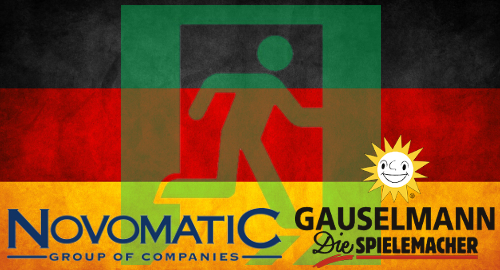 Austrian gaming operator Novomatic Group has confirmed reports that it has ceased any involvement in Germany’s online casino market, while simultaneously calling for clarity in that nation’s gambling laws.
Austrian gaming operator Novomatic Group has confirmed reports that it has ceased any involvement in Germany’s online casino market, while simultaneously calling for clarity in that nation’s gambling laws.
Late last month, German media reported that Novomatic’s Greentube subsidiary had instructed German-facing online casino sites to cease offering Novomatic-produced games as of December 29, 2017.
On Tuesday, a Novomatic spokesperson confirmed the decision to Austrian press agency APA, saying there were “many providers which continue to place copied gaming content unlawfully on the German market without having relevant agreements with us.”
The ongoing uncertainty regarding online gambling’s legality in Germany has apparently left Novomatic mindful of not ticking off the authorities. Novomatic is one of Germany’s largest land-based gambling operators, while its online revenue is only “in the single-digit percentage range.”
Last September, Novomatic scrapped plans for an initial public offering, reportedly due to concerns over Germany’s foot-dragging on revising its gambling hall regulations. The new regs could see Novomatic’s land-based presence shrink by 30%, and the company evidently doesn’t want to give regulators any reason to increase that figure.
Novomatic’s German online exit follows hot on the heels of a similar move in late November by rival Gauselmann Group, which ordered German-facing online casinos to stop offering slots produced by Gauselmann’s Merkur Gaming subsidiary.
Gauselmann’s German skedaddle was likely prompted by the company’s appearance in the Paradise Papers, the leaked files that exposed multiple companies’ connections to subsidiaries in so-called tax havens.
The papers also exposed Gauselmann’s relationships to internationally licensed German-facing online casinos, thereby putting the company at odds with federal laws prohibiting online casino gambling.
Both Novomatic and Gauselmann used their online withdrawal announcements to call for clarity in Germany’s online gambling market, which has been in turmoil ever since the adoption of a new federal treaty on gambling in 2012.
That treaty was deemed incompatible with European Union rules on trade in goods and services, leading to passage of a second treaty in March 2017. This new treaty was made redundant after several German states indicated they would deny the treaty the unanimous consent required for it to become law of the land.
Novomatic’s spokesperson said “re-regulating online gambling in accordance with the case law of the European Court of Justice … is also in the spirit of Novomatic.” Gauselmann stated that “those who need the freedom to play or – like us – to offer games in a narrow legal framework commercially should strengthen the liberal forces in Germany.’